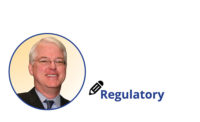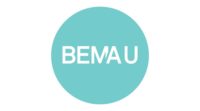As 2015 takes off in full swing, many companies are planning employee development training and education for the year. It seems as though every few years the food industry requires employers to cover additional topics in employee refresher training.
For trainers and educators, the challenge is determining which topics to address and finding ways to deliver the content to keep employees engaged. With more than two decades of experience training and educating adult learners, I understand these challenges and offer you the following suggestions when planning your employee training sessions for 2015.
Look at what happened to your company or industry over the last year.
Start by looking at your customer complaints. Were there significant complaints from a food-safety or quality perspective? Do you notice any trends in complaints? Hopefully, the complaints were addressed and root-cause analysis was conducted.
Remind your employees of the challenges your company faced in the previous year and review implemented solutions to prevent reoccurrence. This is also a great opportunity to reinforce a positive culture by reminding everyone that you were able to respond as an organization and address challenges when faced with adversity.
Next, review the recalls and regulatory action or updates for your industry segment. If there were recalls or regulatory actions against other companies, this would be a good opportunity for your food-safety team to evaluate those events. The food-safety team should review your existing programs to ensure you are prepared and that your food-safety systems will mitigate those hazards. A summary of those findings could be presented to all employees.
Determine what common or significant issues were found during inspections.
There seems to be an abundance of inspections and audits happening in today’s food manufacturing facilities. While these can be challenging and time-consuming, they may provide invaluable information from the previous 12 months and should be evaluated for trends or individual significant findings. Were there particular topics on the inspections or audits that were challenging for your organization? Which of these topics could employees directly impact to move the needle in the right direction? Training and educating employees on these common findings will make them aware of such situations when performing their daily tasks.
Review your previous year’s training conduct.
The most-effective training and education programs seem to be those that divide the platform into multiple, smaller topics that can be covered on a monthly and/or weekly basis. Review the specific issues addressed during the past year and change the delivery method. Employees quickly tune out if you use the same presentation year after year.
Challenge departments and employees to be part of the training/education.
Ask your department supervisors if they—or their employees—would like to assist with or deliver a specific training topic. These individuals are most knowledgeable about their areas and specific situations and can be excellent resources.
Offer next level training/education.
During the year, one or more of your training sessions should focus on taking employees to the next level. Ask employees, “How would you respond and what action would you take if you were faced with (hypothetical situation)?” This type of training and education will help you determine if employees can apply knowledge, analyze situations and evaluate evidence or criteria to make appropriate judgments.
Before finalizing your 2015 training calendar, reflect on why you provide ongoing training and education for your employees. Most of you will probably say it is to better your employees’ knowledge, comprehension, application, analysis and evaluation of food-related situations. What better way to meet these goals than by reflecting on previous events, thinking forward and being innovative in the process?
Lance Reeve is director of global innovation for AIB International, Manhattan, KS.




